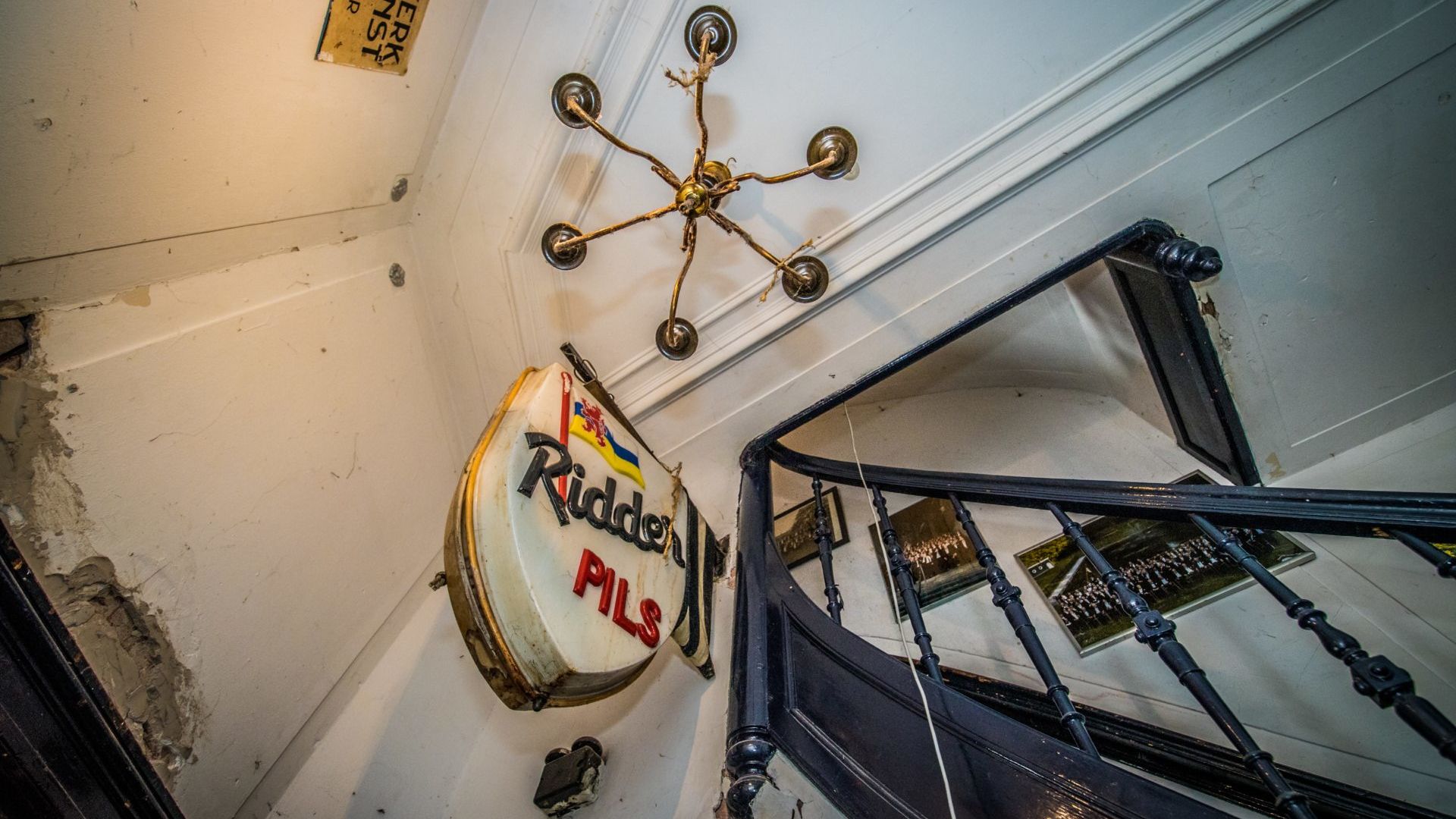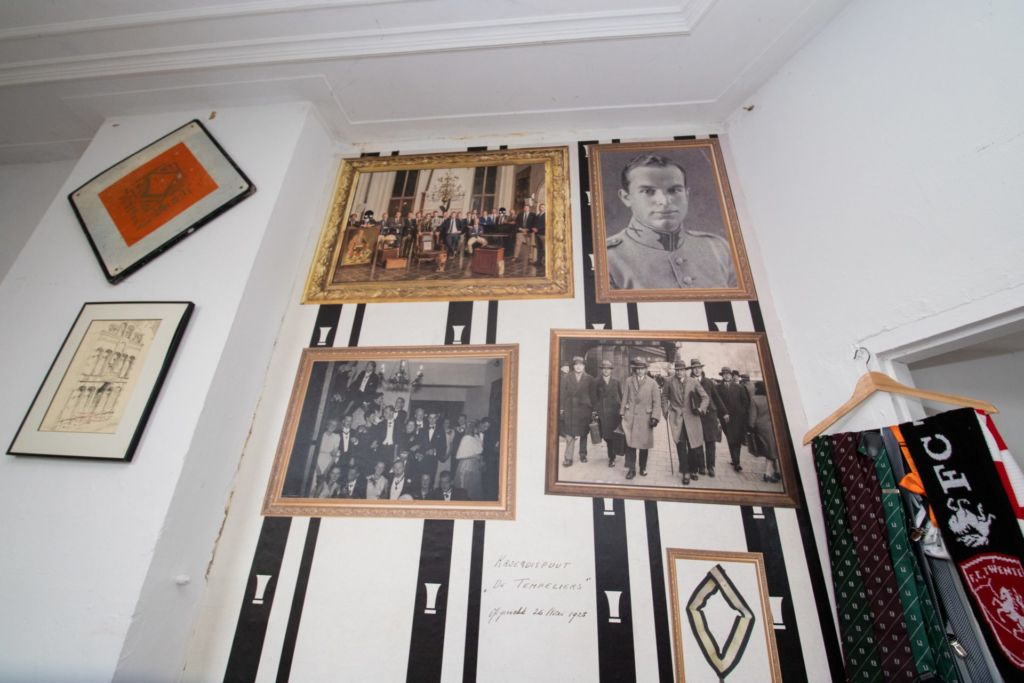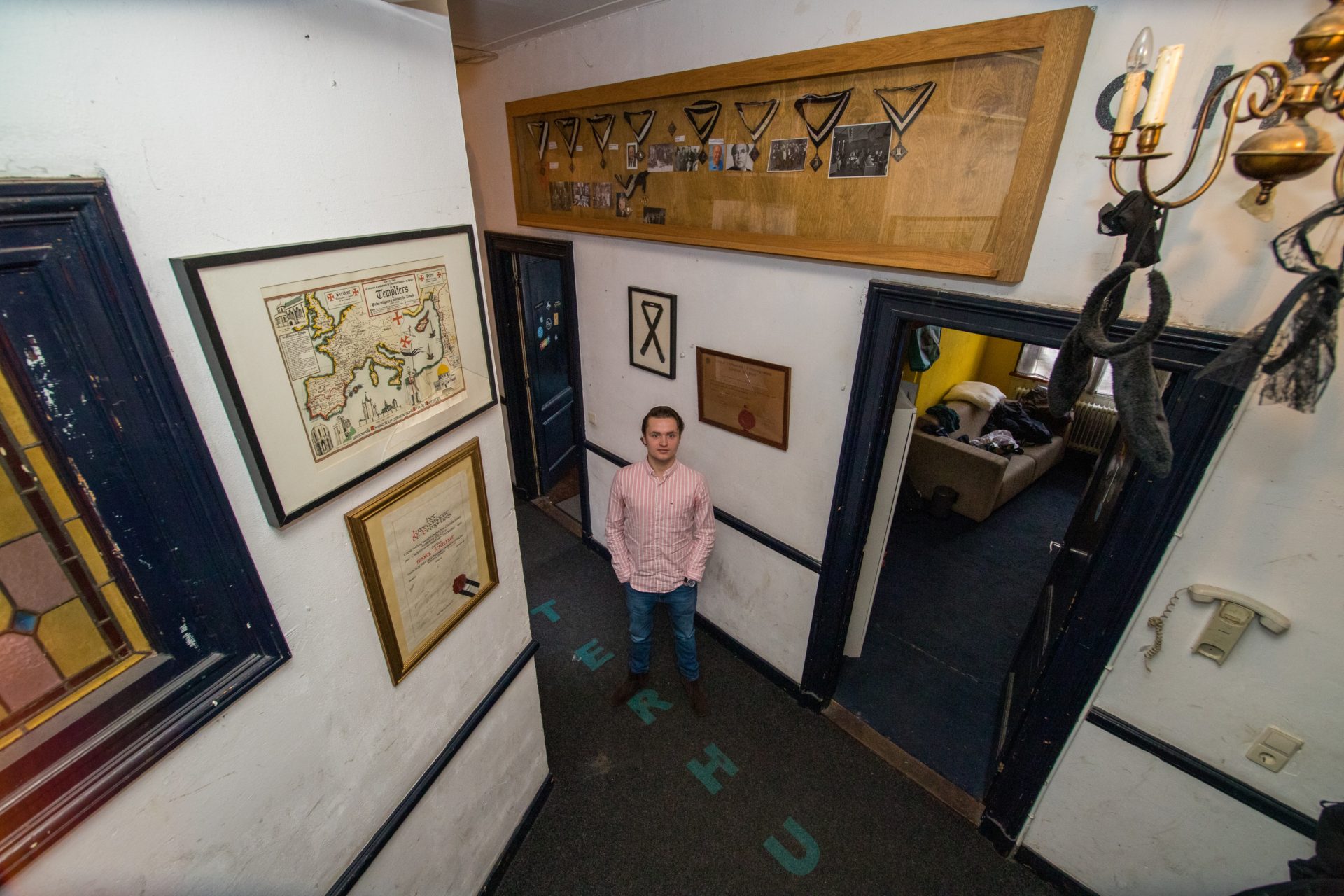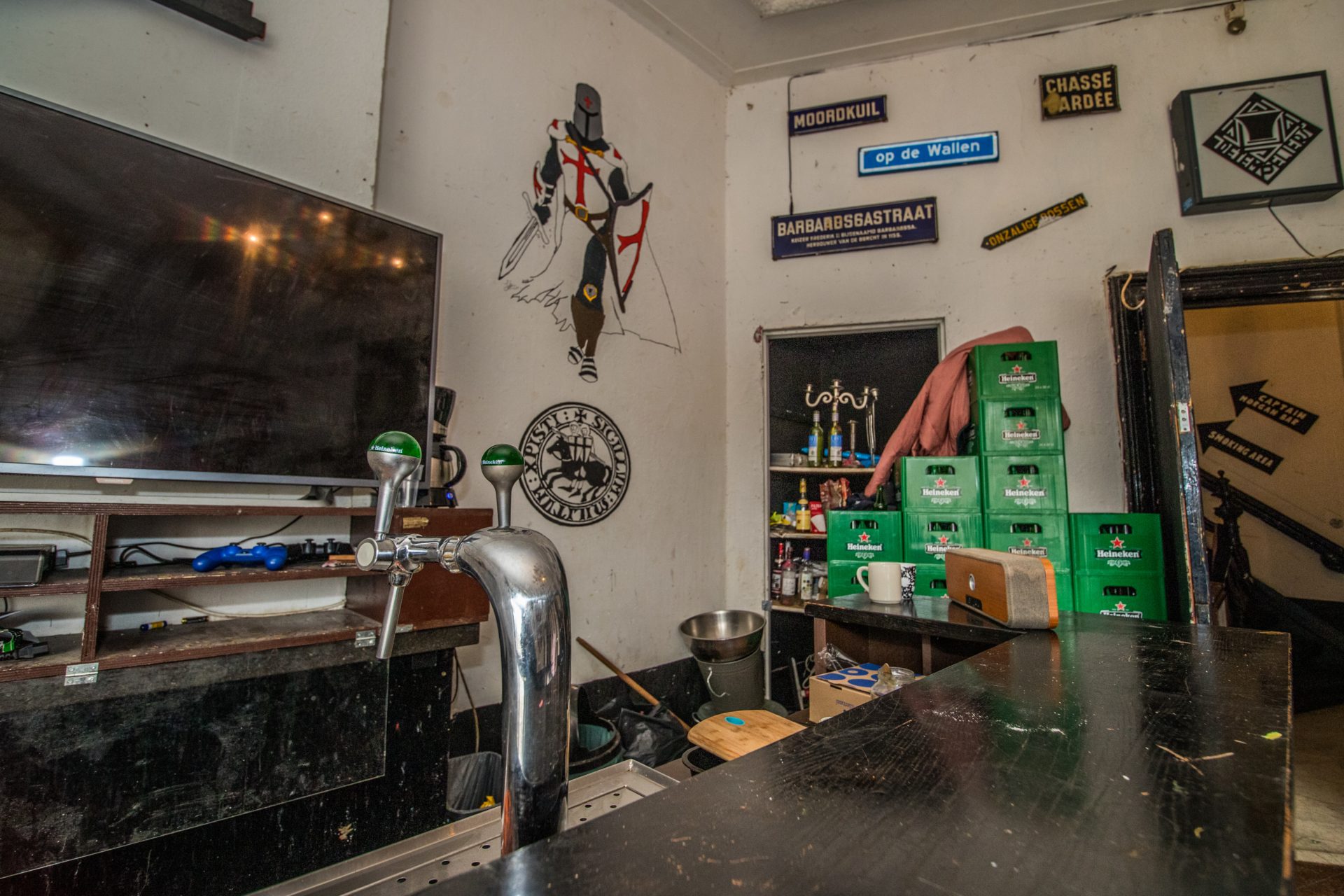Traditional student stronghold De Tempeliers cornered by city policy
-
 In het Vensterhuis. Foto: Tom Hessels
In het Vensterhuis. Foto: Tom Hessels
Fraternity life in Nijmegen is in danger. For the past two years, the city has been chasing illegal student housing without making an exception for fraternities. Stan Koershuis, of Bar fraternity de Tempeliers: 'We thought: we do not need a permit. We have been living here for the past sixty years.'
In ‘het Vensterhuis’, as members of De Tempeliers call their house, history has been attached to the wall. From his bed, house president Stan Koershuis has a clear view of a portrait of Marcel Mignot, who died in 1940 while fighting Germans in the Battle of the Grebbeberg. Mignot was a Tempeliers member and studied Law, like Koershuis does now.

In 1925, two years after the Katholieke Universiteit Nijmegen – Radboud University’s predecessor – was founded, Bar fraternity De Tempeliers saw the light of day. The members are proud of the fact that the fraternity is one of the oldest in Nijmegen, Koershuis says. ‘But we did evolve over time. Contrary to many other fraternities, our members do not have to dress in suit and tie to come to our gatherings.’
In 1957, De Tempeliers bought Het Vensterhuis. Then, the residents saw the university auditorium from their windows, it was based on the other side of the street, where the Karel de Grote College is now. The university moved its auditorium to the campus in 1988, but De Tempeliers have stayed at the Wilhelminasingel 12 until this day. From Koershuis’ room, you see the schoolyard.
Penalties
Question is: how much longer will students be allowed to live in Het Vensterhuis? At the start of this year, the municipality noticed that the building missed the necessary permit. In a letter, it asked the residents to leave the building before the 7th of January, or to apply for the conversion permit to avoid penalties.

Koershuis and the other fraternity members were astonished. ‘We thought: we don’t need a permit. Permits like that are meant to combat investors who buy houses and turn them into student housing. I understand that the city wants to do something about that, because there are way too little houses for people who starters on the housing market. But we have been living here for the past sixty years.’
No permit
Most of the fraternity houses in Nijmegen that are rented out privately, have no permit for renting out rooms, Vox research shows. Apart from De Tempeliers, this includes THOR, Elegast, De Gong, AVIS, DIANA and the city building of Aquila.
The fraternity has bought itself some time by appealing to the city’s decision and applying for a preliminary injunction. This gives the residents a roof over their heads for the foreseeable future. They use the extra time to prepare for a possible legal battle with the municipality. Koershuis says that the archive of the fraternity produced a letter from 1957, in which the city allows De Tempeliers to live in separate rooms in Het Vensterhuis. Nevertheless, the members have received a message saying that a conversion permit is needed. And the municipality has to decide whether De Tempeliers get one. ‘But we don’t agree with that,’ says Koershuis.
Pointing fingers
A complicating factor for De Tempeliers, is the fact that the neighbourhood around the fraternity has been complaining about students who cause nuisance. Neighbours point fingers at the De Tempeliers and THOR, on the other side of the street. THOR has been fighting the municipality for a while now – the fraternity’s permit has been refused because of the livability of the neighbourhood. It can be expected that the city will use the same argument to refuse De Tempeliers’ request for a permit.
The residents of the fraternity house have been working hard to reduce the nuisance, says Koershuis. ‘Former members tell me stories like a smoke bomb being used in the house, so a lot of smoke comes out the windows. Things like that are really out of the question now. Our rule is: who doesn’t park his bike in a bicycle stand, has to buy a crate of beer. That’s 12 euros.’
Koershuis feels that a number of neighbours conspire against the fraternities. ‘If they hear something, they motivate each other to report nuisance.’ Because of that, the city has a full file of complaints, for which the fraternities get the blame. ‘Even though it’s not always clear where the noise comes from’, says the president. He points at the other side of the street, where a hip employment agency called Pepperminds is based. Parties there often last until far after midnight. ‘Noise can come from them as well.’
First-years
If it happens that De Tempeliers have to leave their home, that would not just be bad news for the fraternity, says Koershuis. ‘Also for the university. During orientation, fraternities open their doors to first-years.’ Mother association Carolus Magnus – founded in the same year as the university shares the fraternities’ concerns and has also communicated that with the university.
Above all, an important piece of Nijmegen student history would be wiped out, says Koershuis. Het Vensterhuis really having to close its doors is something that he cannot bear to think about. ‘We keep the faith. But it is stressful.’




